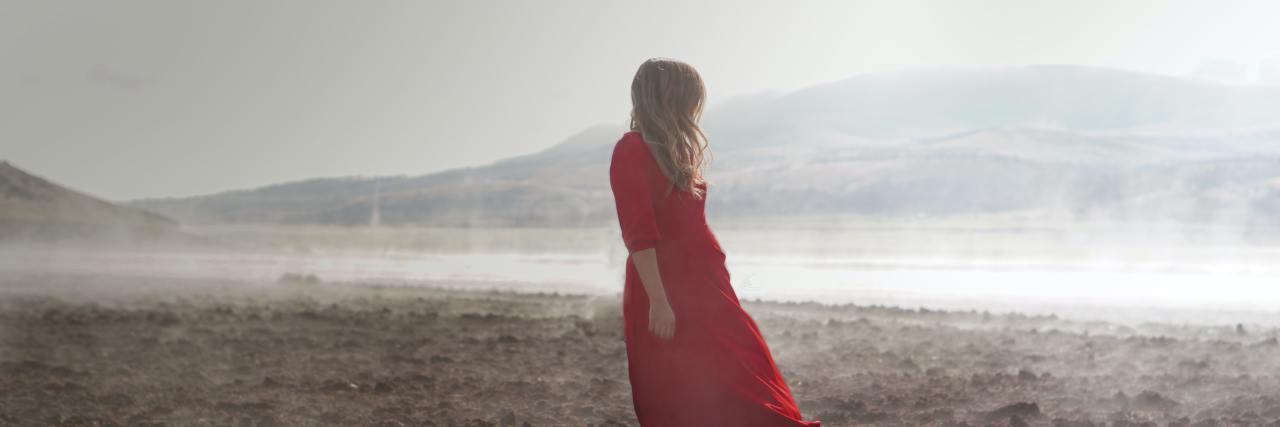When Chronic Illness and Suicidal Thoughts Meet a Pandemic
Editor's Note
If you experience suicidal thoughts, the following post could be potentially triggering. You can contact the Crisis Text Line by texting “START” to 741741.
I never suspected when I tried to end my world, the rest of it would also try to join me.
Further, I never suspected I would turn into the type of ghost who guides others into this new plane of existence, and yet, here we are suspended in unprecedented times.
Growing up, I heard tales of how miraculous my survival to date truly was, all things considered. So, it only made sense I confronted my mortality at a much younger age than my peers. I’ve struggled with my identity for as long as I can remember because it was defined for me before I could even cry.
I’m what happens when a “miracle child” not only survives, but grows up.
Born with a cardiac deformity, I experienced cardiac arrest, and death, twice before 12 months. Teen years and my 20s brought emotional anxiety along with an unruly immune system, requiring a near decade of oral chemotherapy and steroids to tame my wayward cells. I became an expert in living with an invisible illness, a master of masks and an authority on emesis bags. Gloves? I got them and I’ve had them for decades. I know how to survive the world of chronic illness, but I didn’t know how to actually live my life before the world ended. Now, as I watch the world tumbling through a viral catastrophe while I sit in near-total isolation in rural Vermont, I can’t help but feel like I successfully killed myself last fall and am sitting squarely in Purgatory.
Exactly three months before the first recorded case of the coronavirus (COVID-19) in the United States, I placed my stethoscope in its original box for the first time in 10 years. I was giving up, because for the first time in my life, I realized my body was stronger than my will. I was losing my physical footing with chronic illness and it was taking its toll on my mental health. Despite surviving my childhood, obtaining two advanced degrees and successfully practicing medicine for that decade, it was in my 30s when I was diagnosed with gastroparesis and I truly, finally gave up. Gastroparesis is a spectrum of gastrointestinal disorders and, in this case, my stomach is paralyzed resulting in my inability to eat normal food in over three years.
As my mind, body and hope wasted away, I considered suicide. But it turns out, I just didn’t have the stomach for it.
I didn’t want that life anymore. So, I resigned from that respectable clinical position and I was resigned to figuring out whether or not I wanted to live in this world anymore.
I gave up my white collar and became a ghost.
As I worked through my personal demons in therapy, I started to see my afterlife as less of a purgatory, less of a hell, and eventually something that felt comfortable.
I was gliding through my afterlife with ease, but then something terrifying happened.
The world exploded.
It changed into something contagious and sterile all at once. The pandemic put the entire world on pause.
It turned into something everyone around me struggled to understand, but to me, it was also familiar. So often the healthy do not understand what sacrifice means until it happens to them. So often the living do not know what they can survive. But I do.
Being sick during the pandemic is not quite like being sick before. I’m still floating through this afterlife and I’m still invisible … but so is everyone else.
So, here I am, suspended in these unprecedented times, but now I’m hopeful I can hold a lantern for the rest of the lost souls looking for their path.
Unsplash image by Ali Karimi

